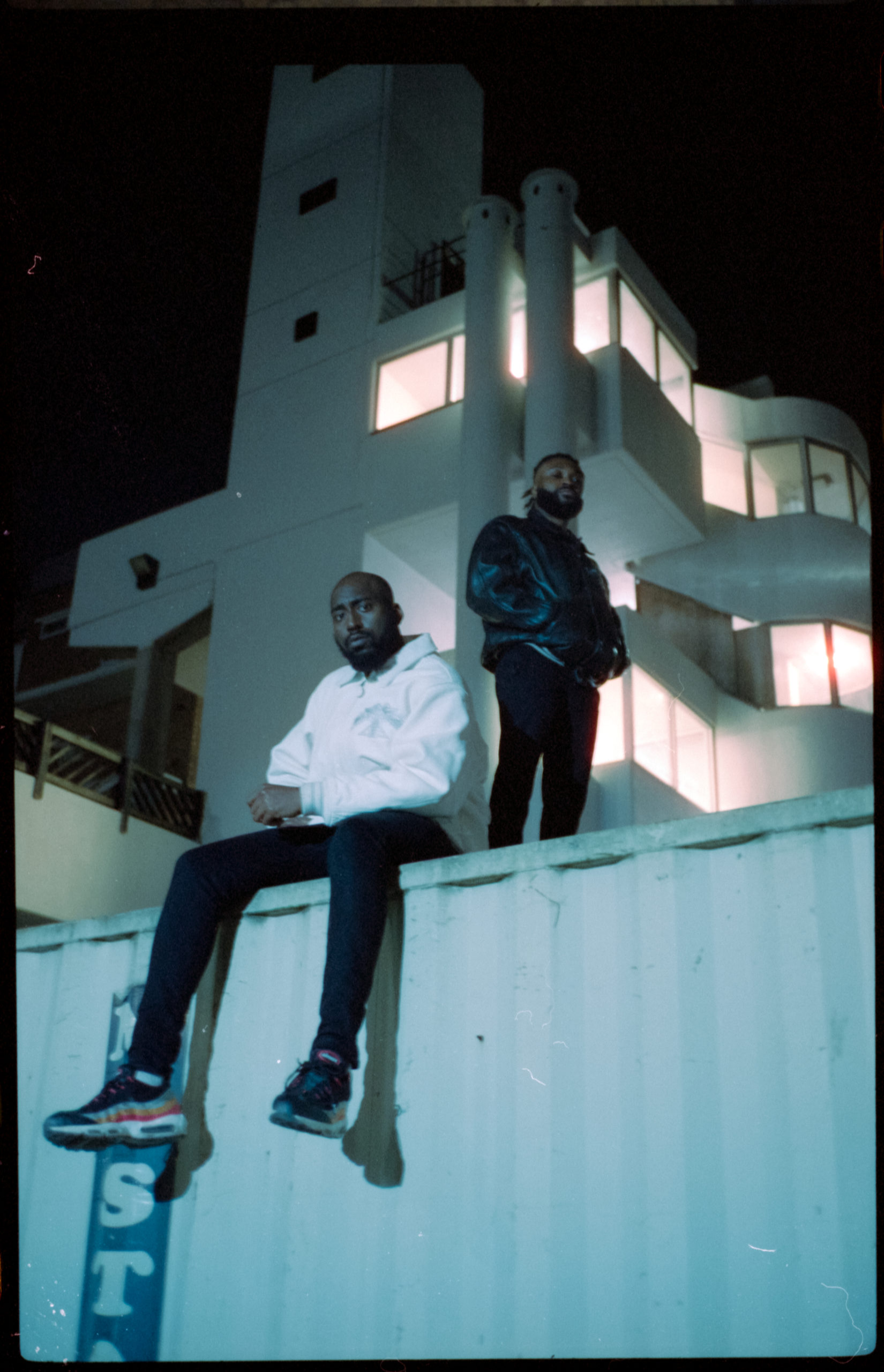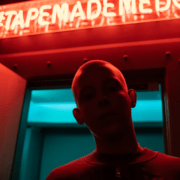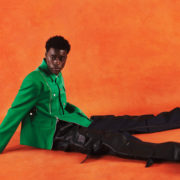Dips [@DipsArtist] and Lo-Wu [@LowuSounds] shine on the debut mixtape, ‘Idle Hands’
![Dips [@DipsArtist] and Lo-Wu [@LowuSounds] shine on the debut mixtape, ‘Idle Hands’](https://guap.co/wp-content/uploads/2021/08/DL2-scaled-e1628818634636-180x180.jpeg)
Words by: Dwayne Wilks
With their debut EP, Idle Hands, being released on the 12th of August, we chopped it up with South London duo Dips and Lo-Wu about their origins in music, the unlikely marrying of Garage with introspective content, and the untapped potential of idle hands.
By way of a raft of singles, loose drops, and features Dips and Lo-Wu (the former as the lyricist and the latter the group’s producer) have positioned themselves as one of the most exciting prospects in UK underground Rap. August 12th marked their formal introduction to the scene, when Idle Hands, their 10 track, debut project was released. As I talk with them about how their respective and collective journeys have culminated in Idle Hands, a common thread appears, one that’s also a central theme in the EP: an understanding of where you’ve been being key to understanding where you are.
“I started making beats back in secondary school times,” Lo-Wu says when I ask about his start in music. “Grime days. Someone gave me the cracked FL software on a CD. Came home, put it in my computer with the big back-off, started playing around with it. It started from there.” When I put the same question to Dips, he speaks of how, in his school days, he used skill with the pen as means to fit in:
“My thing was writing bars because I wanted to belong to what I saw as a gang at the time, know what I mean? It was a young group of people just out here to cause trouble or have fun in a way that was very dumb. I wasn’t about what a lot of them were on so I thought if I write, if I spit, that would be my way to belong – that’s my ting, that’s what I’m known for on the playground or in the area. [Starting off] I didn’t really know the essence of someone that writes to talk about their life or explore themselves or establish themselves creatively.”

From the offset of Idle Hands, it’s clear that Dips no longer has any interest in using his lyrics as means to ingratiate himself with others. The very first lyric of project opener “Trip” sees him set the table, one on which introspection and contemplation can be found in abundance – “My G tag along, find my faults when I write these songs”. Elsewhere, on standout track “The Ride II”, a marker of the therapeutic quality of writing is found in Dips solemnly stating, “Need to overcome trials that my heart faced…/I put the pen to the pad on my dark days/hand to hand, holla Yahweh”.
“Writing is the perfect vent for me,” Dips tells me. “When I hear a beat [and it’s] Lo-Wu production, it gives me the emotion to know what to write about. It allows me to say what I wanna say, and say what I mean, instead of saying what I feel needs to heard which is totally different. I feel like people can tell when it’s not as authentic as it could be. I don’t like that – I like using my words to connect and to touch people.”
What makes the Dips and Lo-Wu sound, and more specifically that of Idle Hands, so identifiable is that its form isn’t tied to its function in a conventional way. Even at his most contemplative, Dips’ flow is skippy and slippery, his kinetic yet controlled brand of lyricism clearly deriving from his school days spent in local Grime crew, Rhyme and Reason. “The skippy stuff comes from the grime days,” he says. “What I’m actually saying [in terms of content] comes more from being a fan of introspective cuts. You’ve got people like Kano who’s a big, big influence when it comes to that kinda stuff. People like Ghetts, people like Dot Rotten. Real barrers but at the same time they’re not afraid to free up their perspective, how they feel, what they’re going through, and cut against the grain.”

That unconventional relationship between form and function pervades all aspects of the duo’s music. Case in point, Lo-Wu’s beats on the EP are always moving, every part as dynamic as the lyrics of the wordsmith, simultaneously showcasing and challenging Dips at the same time. Idle Hands spans a wide section of the musical spectrum, but for its range, the quality or cohesion is never compromised. I asked Lo-Wu to explain how he has developed his production style:
“My starting point was grime. I’ve always been a fan of darker production – heavy bass sounds, even some of the industrial stuff, so that’s why you hear stuff like “Trip”. But I also grew up on Garage – you know the likes of Craig David and Artful Dodger, So Solid and all that. As I got older and I’ve gotten more into the Soundcloud stuff, I started producing Electronic music, I really got into the Electronic bag. Just to really explore different production styles. And I started listening to a range of stuff: people like Flying Lotus, James Blake, The Soulection lot. Then, coming from a Nigerian background, Afrobeat has always been in my life from young.”
His eclectic tastes are evident on Idle Hands. The infectious bounce of Garage and the gritty sonics of Grime have their phases on the project, while elsewhere more delicate melodies – guitar and piano riffs – drive the production. “I like to mesh genres; I don’t like to box myself in and say “I’m this kind of producer” [or lead with the thought] “I’m gonna make this type of tune” because all my influences make me who I am, and it’s the same with the music for me.”
When I suggest that the unlikely pairing of introspection and social commentary with Garage might have been the result of a concerted effort to mesh two, the duo dovetail in their telling me that it was quite the opposite.
Lo-Wu begins, “Some of the beats just led Dips that way. Music does that man. Certain chord progressions will put you in a certain mood, and so it just came naturally”, Dips hops in, “Yeah, it’ll put you in a certain mood or remind you of a certain experience,”. Now Lo-Wu jumps in to pick up the baton, “or it’ll be conversations we’ll have! We’ll be in the studio talking about something – Like with the tune “Concrete” for example. At the time knife crime was in the news and we were talking about that.” Dips elaborates, “we were talking about an experience from when we were back in school. Back then someone in our area got murdered. He went to Lo-Wu’s school but [my] school knew about it. I didn’t know Lo-Wu at the time but that was an experience that the whole ends shared. So we started talking on that, and that influenced where we went with “Concrete”.”
With each listen of Idle Hands, it becomes more apparent that you’re listening to a well-rounded and experienced perspective. Not just because the essence of the ends is baked into the mixtape paired with Dips and Lo-Wu’s experiences as individuals, but also through the fun, danceable moments, such as “Queen of Hearts” and summer-ready bop “BSL” ft. Mundu. Dips explains, “I remember saying to Lo-Wu, I wanna make something that makes people move man, I wanna do something that energises people. Cos before I feel like my music was very introspective, which was fine but I knew that I could do more. I wanted to get into something new that I hadn’t done and just push myself creatively.”
As the interview finishes up, I put one last question to the duo: why the title Idle Hands? Lo-Wu answers:
“it’s about looking back on youth and growing up and all these things. Just trying to find your way, not really knowing what you’re doing, being bored. It’s idleness innit. But at the same time, we’re telling our story which is that music kept us away from that idleness. We’ve had our stints here and there, so the tape is telling our story but also the story of the ends, some of the stories that we’ve seen, the stories that I’m sure you know as well just from being around. It’s the good and bad, it’s the journey, it’s the duality – the idleness but also figuring things out along the way. So, it’s a question of “what can idle hands do”. Do you let the devil do his ting with you [per the phrase] or do you find your way? The tape is really our discovering of where we go with our idle hands.”
Idle Hands is out now – stream it here via Platoon: https://platoon.lnk.to/idlehands/





![ZINO VINCI’S ‘FILTHY & DISGUSTING’EP BRINGS YOU TO THE CORE OF THE ARTIST [@ZinoVinci]](https://guap.co/wp-content/uploads/2023/10/Zino-4.jpg)




